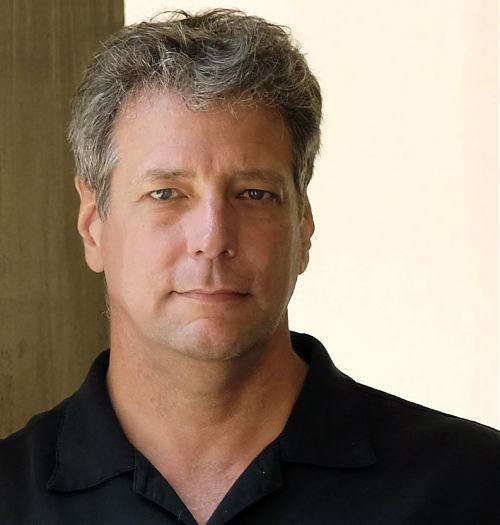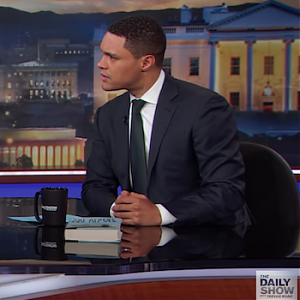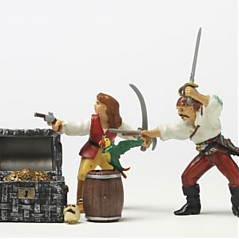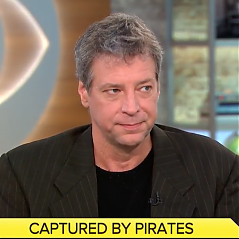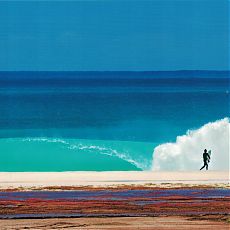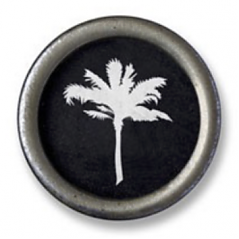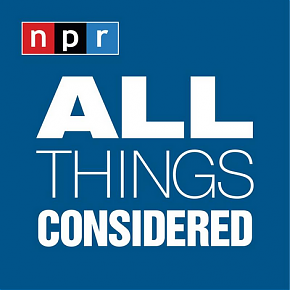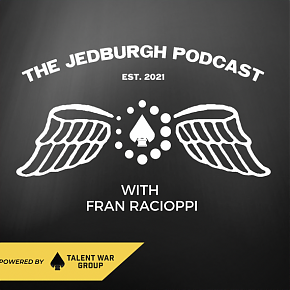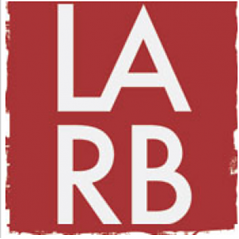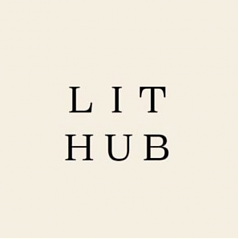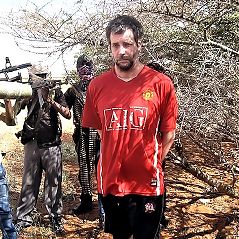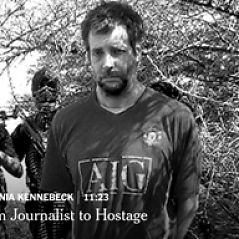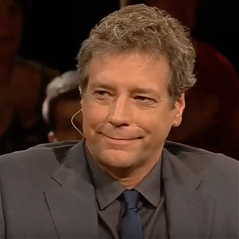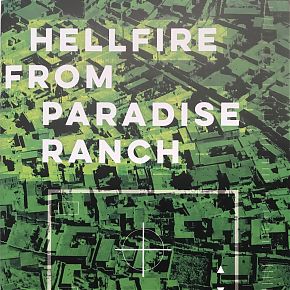Talking to Jihadis
The author visits Islamic radicals in Indonesia.
January 2006
As people shopped for groceries at an open-air market on New Year’s Eve in the Indonesian coastal town of Palu, a homemade bomb loaded with nails killed at least eight people and ripped apart a kiosk selling pork. Christians on the island of Sulawesi eat pork on New Year’s, but devout Muslims, of course, don’t. Indonesian police believe the bombing is the latest tragic installment in a long-simmering religious struggle, like the decapitation of three Christian girls on another part of the island last October. Militants with machetes attacked the girls in a cocoa plantation while they walked to a Christian school, and — just to make sure they made their point nice and clear — they left one of the heads lying outside a church.
The message was war: Sulawesi is half-Christian, but jihadis there think the island should be sanitized for Islam. The idea is to win a limited war for shariah law in an area where radicals think they can set up an Islamic government. Scattered “secure areas” for shariah have existed in other countries, like the Philippines. The Moro Islamic Liberation Front built base camps there in the early ’90s, for example, and within a few years a network of Muslim villages on Mindanao Island answered to “the Bangsamoro Islamic government” instead of Manila.
This war has been mentioned by US President George W. Bush. Lately he’s been on the lecture circuit to refresh everyone’s memory about the war on terrorism. “The terrorists’ stated objective,” he has said recently in a handful of cities, “is to drive US and coalition forces out of Iraq and gain control of that country and then use Iraq as a base from which to launch attacks against America, overthrow moderate governments in the Middle East, and establish a totalitarian Islamic empire that reaches from Spain to Indonesia.”
He’s right — that is what the terrorists want. Whether their wishes are in danger of coming true is another question. The columnist William Pfaff has made fun of the speech line by calling it, “a farrago of unattainable Islamist ambitions and al-Qaida’s delusions, cobbled together by administration speech-writers to frighten Americans who are laggard in their support for Bush’s war.”
Much of Sulawesi — like most of Indonesia — is peaceful and calm. But there are scattered battlegrounds. Indonesia is the largest Muslim country in the world: It has a secular constitution, but (like Iraq) it’s new to democracy. I went there in spring 2004 to research a book and watch the people elect a president. A right-wing dictator, General Suharto, had ruled the vast chain of tropical islands for more than thirty years, from 1965 to 1998; but a student movement inspired by a rotten economy forced him out, and while I was there Indonesians were casting their first direct votes for president.
I also dropped in on members of Majelis Mujahideen of Indonesia — MMI, or the Council of Martyrs — which is a front group for Jemaah Islamiyah, the al-Qaida linked group that contributes foot soldiers in Sulawesi. Abu Bakar Baashir, the famous old radical with a white beard who keeps moving in and out of jail, founded MMI in 2000. The group’s relationship to Jemaah Islamiyah is like Sinn Fein’s to the Irish Republican Army: One is official, the other not. MMI has a Web site and makes campaign endorsements — though they don’t always talk to the press. Although Baashir likes to call both Jemaah Islamiyah and al-Qaida figments of the government’s (or America’s) imagination, everyone can agree that MMI is real.
My guides and translators were university students in Yogyakarta, a lively cultural hub in the middle of Java. When I asked them to put me in touch with “fundamentalists,” I wasn’t sure what to expect, but through Abi and Syihab I got to have a rare conversation about democracy and shariah law with hard-core (but unarmed) Indonesian jihadis.
The MMI office was a low bare building in the east of Yogyakarta, on a plain residential street. It had the shabby uninspiring feel of a tax office. A concrete overhang shaded a green-tiled porch where a desk stood next to a glass souvenir case full of pulp novels with Muslim-superhero themes.
A member named Hasyim Abdullah checked us in. He was thin and short but intense, with a dark beard like a lace curtain, a black peci or pillbox cap, and a brown callus on his forehead from bowing during prayer. Abi and Syihab, my translators, mentioned it later: The callus was a badge of radicalism.
First, there were rules: We had to sign in. We had to show I.D. I filled out a form declaring my intentions. When that was over we talked about Islam in a casual way. Hasyim sat behind the desk and spoke with brow-creased passion. Other Majelis members came to sit around us. One of them, Rian Firdausi, said we were “just talking,” since the executive director wasn’t in. No one else could speak for MMI as an organization. They could give their own opinions, but not the official word. Rian wore a white peci, squarish tape-mended glasses, and a long off-white robe. He wasn’t bearded so much as unshaven. He had a gentle manner and didn’t polemicize like Hasyim.
With my form in his hands, Hasyim squinted. He wasn’t sure if he could trust me. He started with a few principles: Muslims viewed God as the only source of truth, and therefore the only source of law. Democracies since the French Revolution had turned “majority rule” into God. Muslims, on the other hand, had a perfect way of ordering society. God had given them an unimpeachable set of laws, through the Koran and the hadiths, or acts of Mohammed, which would solve every human problem.
I said no one confused God with majority rule in the United States. The founders of both America and modern France had seen a distinction between the law of God and the law of man. Christianity allowed this distinction.
Hasyim asked for evidence.
“Evidence?” I asked Abi.
“He’s asking if you remember any specific lines from the Bible that allow people to have laws outside Christianity.”
In other words, to Hasyim, western systems were Christian systems. He didn’t believe there was separation of church and state. So I tried to think of a good line from the Bible.
“Well, there’s a proverb from Jesus — ‘Give to Caesar what is Caesar’s, give to God what is God’s.’ He was talking to Jews about paying tax to the Romans.”
Hasyim had never heard this quotation. He asked me to repeat it. Then he explained that in Islam, law came only from God. Allah and traffic laws
“Allah makes law for every human problem,” Rian said in careful English. “Why should we make law again?”
“Every problem? Even the small ones?” I asked.
“Yes, of course,” Rian said.
“How about parking and traffic laws?”
At first they were confused. I wasn’t trying to be facetious. But Rian said bitterly, “Can you think of a problem with traffic-parking that goes against the rule of Allah?”
“So human laws are allowed if they don’t violate Islam?”
“Yes.”
Abi explained, “Minor laws can be extrapolated from larger laws in the Koran.”
“Then is democracy an acceptable way to arrive at smaller laws, as long as they don’t contradict the Koran?” I asked.
“Aha.” Hasyim had me here. In his aggressive, precise and rapid dry voice he spun out another argument, and Abi translated: “We cannot divide between Islam and democracy, because Islam is by nature democratic.”
“How?”
“One law in the Koran says, ‘Males and females who have done their duties correctly will be given the same reward.’”
“I see. Equality under God.”
“Yes.” Abi translated Hasyim: “Islam as a law of living is perfect; it’s been blessed by Allah himself. There’s democracy as a doctrine, and Islam as a doctrine. But the true one is Islam.”
A doctrine? Abi had used this word more than once. Hasyim went on: The trouble with America, he argued, was that it had no single moral standard. There were many standards; this led to confusion. How did I account for America’s social problems under democracy? They were the result of different standards. In France, Muslim dress had been outlawed — was that democratic? In Indonesia or any Muslim nation I was free to worship as I pleased. In fact, Islam was more tolerant than western democracy. Since the 14th century there had never been a church, or temple, or synagogue, or holy house from any foreign tradition destroyed by Muslims in any Islamic society. Yet there was intolerance of Muslims in Europe and America. How did I account for these contradictions?
The killing in Sulawesi that had been going on for several years seemed worth mentioning, but Hasyim’s answer had turned into a rant. The idea that no church or temple or synagogue had ever been destroyed by Muslims in centuries was such nonsense I had no idea what to say. Hasyim was baiting me. The reason for violence against other religions in Muslim areas is normally some variation on self-defense. Islam is under attack — which is what militants think in Sulawesi, because so many Christians do missionary work there — so Muslims need to take up arms.
I went back to another subject. I asked Hasyim about the word “doctrine.” To me, democracy wasn’t a doctrine — it was a process. Not a perfect one, and people weren’t perfect under it. But a democratic system could evolve.
“But it cannot give answers to the human problem,” he said.
I asked how he accounted for social problems in theocracies like Iran, Pakistan or Saudi Arabia, where shariah was in force.
“They don’t stay close enough to the Koran and the hadiths,” said Rian. “God and his law are perfect, men are fallible. Also, people who commit violence in the name of Islam do dishonor to Islam, in the eyes of the world.”
“Then Muslim terrorists aren’t true Muslims?”
Hasyim scowled. His forehead furrowed around the dark prayer callus and he started to shout: “George Bush is the terrorist!” he said. “Not Muslims! There are no Muslim terrorists! George Bush …”
But Rian said that in his opinion true Muslims could not be terrorists.
Then Hasyim began to rant — really rant, in long passionate sentences which Abi and Syihab interrupted sometimes, just to translate — about President John F. Kennedy, who (he said) tried to solve problems caused by America’s wayward youth in the 1960s by sending the social scum to Vietnam. Did I think that was a good idea? Kennedy, said Hasyim, had promised in a campaign speech to cleanse American society of its losers and criminals by sending them as cannon fodder to Vietnam.
“That’s not true,” I said.
“But have you heard this campaign promise?” Rian asked.
“Never.”
“Well,” he said triumphantly. “You should look it up.”
Of course Vietnam wasn’t even a campaign issue in 1960; but I let that go.
Soon the meeting broke up. It had been tense. Abi and Syihab were shaken, too. They’d never talked for so long to fundamentalists. The fierce defense of illogical positions, to Abi, was “scary,” but also a question of self-knowledge: He said Hasyim and Rian and the others would never look inward to question themselves or their religion. “Instead, they looked outside for enemies.”
Abi also said something interesting. In spite of the shabby office building, and the poor-looking clothes, fundamentalists in Yogyakarta tended to be middle-class students from technical universities. “Science and religion aren’t separated here, as in the west,” he explained. “But some people raised in secular homes have no exposure to Islam until they are at university.” They discover these ideas as technical students and convert with fervor. Rian at the MMI office had said his family in Sulawesi was aristocratic — “but I no longer call myself an aristocrat; I am a Muslim” — and Abi thought that was a good example. “Rian may have been raised in a secular home,” he said.
The radicals I met in Indonesia contradict the vague idea in America that violent Islam is a function of oppression and poverty. Where dictators keep people destitute, goes the thinking, frustrated young men turn to extreme religion. That was one point of the Iraq war. Beyond the fizzled excuse about weapons of mass destruction, one of the main justifications for the invasion was that “a stable, peaceful, and democratic” Middle East would breed fewer terrorists, not only because terrorists relied on certain dictators for money but also because ordinary Muslims would have less reason to bomb London or New York if they could feed their families and vote for their leaders.
What complicates the situation in Indonesia is that democracy seems to have had the opposite effect. The collapse of Suharto’s dictatorship enabled Baashir to freely set up MMI in Yogyakarta in 2000, and let Jemaah Islamiyah spread to the major cities and rebel flashpoints of Indonesia, starting with East Timor. Germany’s Federal Intelligence Service (BND) reports that “fundamentalists in Jakarta’s universities are gearing up to assume power in the 2008 parliamentary elections” — but that doesn’t mean that what they have in mind is democracy.
When middle-class or even rich young men discover the poetry of the Koran, the austerities of sharia, along with the fiery rhetoric of rebellion against an imperial, decadent west, it is easy enough to end up with warriors for the law of God in any system. And democracy gives them freedom to move. To most Americans, this tolerance of subversion is the great virtue of a liberal society, but in Indonesia it fails to move Hasyim Abdullah’s heart with gratitude.
Michael Scott Moore
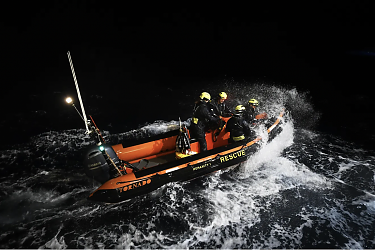
Rafts of the Medusa
Why every day on the Mediterranean is a new scandal for Europe. For both Foreign Policy and Die Zeit.
California’s Attempt at Land Reparations
How land seized from a Black family 100 years ago may be returned. The Bruce’s Beach story from a hometown angle, for The New Yorker
Day of the Oprichnik, 16 Years Later
The novelist Sorokin, the president Putin, his man Dugin, and the war in Ukraine. For n + 1.
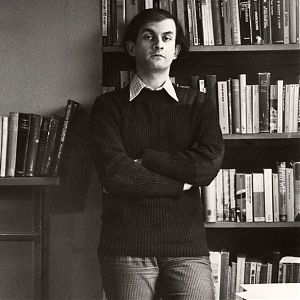
The Rushdie Narrative
Knife and the crumbling ground beneath free speech
There Must Be Some Way Out of Here
An essay on Bob Dylan, “All Along the Watchtower,” and Somali pirate captivity.
That Mystic Shit
The life of Lou Reed in two biographies
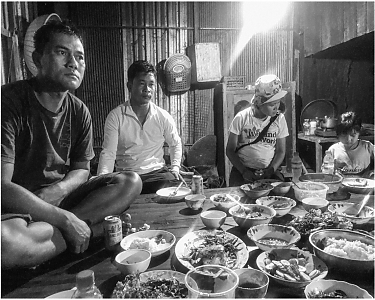
Cambodian Seafarers Talk About Pirates
Mike visits Cambodia for The New Yorker to talk about a harrowing shared experience in Somalia
The Muslim Burial
Cambodian hostages remember digging a grave for one of their own. A sequel chapter to The Desert and the Sea
The Real Pirates of the Caribbean
Adventure journalism in Southern California. A travel essay for The Paris Review.

Antifa Dust
An essay on anti-fascism in Europe and the U.S., for the Los Angeles Review of Books
Was Hitler a Man of the Left?
A book that helped Republicans in America lose their damn minds.
Ghosts of Dresden
The Allied firebombing of Dresden in 1945 destroyed the baroque center of what Pfc. Kurt Vonnegut called, in a letter home from Germany, “possibly the world’s most beautiful city.”
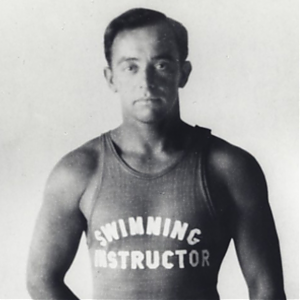
George Freeth, Biographed
The first academic treatment of America’s surf pioneer. Also, was Freeth gay?
It’s Called Soccer
Americans live on what amounts to an enormous island, defended on two shores by the sea, and we’ve evolved a few marsupial traditions that nobody else understands.
Tilting at Turbines (in the Severn River)
The morning was clear and cold, with frost on the church steeple and the cemetery grass. I had a quick English breakfast at a white-cloth table, in my wetsuit, and drove to Newnham, a village on the Severn River in Gloucestershire, parking near the White Hart Inn.
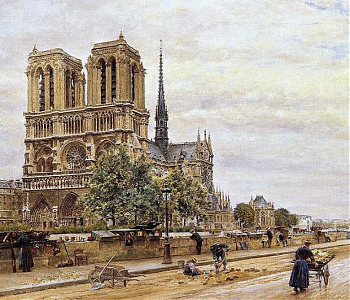
The Curse of El Rojo
I’d packed the car lightly — a bag of clothes, a bag of cassette tapes, a backpack of books, a few essential tools.









